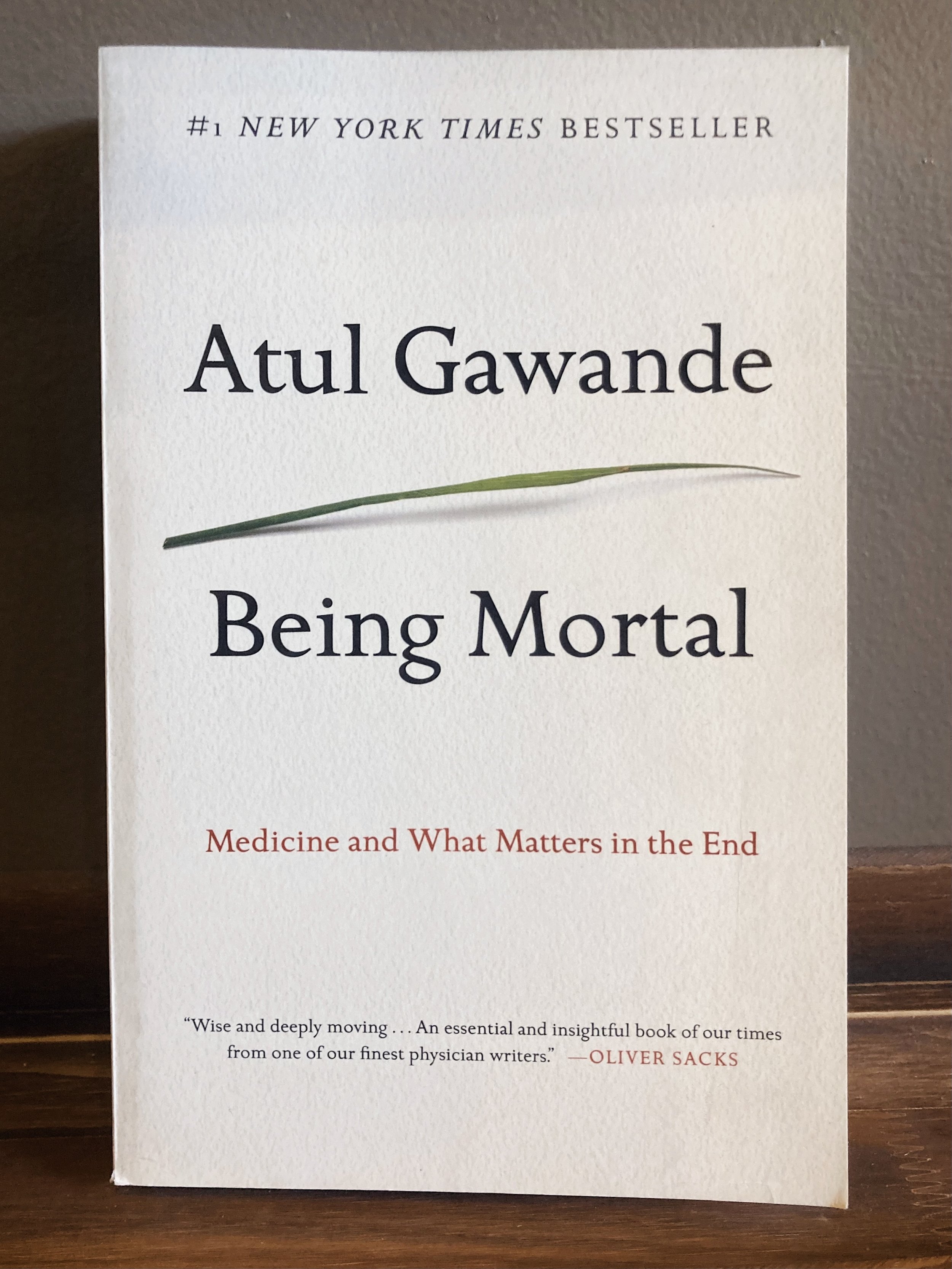Being Mortal: Medicine and What Matters in The End
A surprisingly affirming and hopeful book about what it's like to die under capitalism. Gawande draws on his experience as a surgeon as well as seeing family members through their final days to question whether it's possible to have a good death in a society where you aren't surrounded by a huge extended family that has to tend to you. He traces the history of elder care, from the squalid poor houses of not-so-distant history to nursing homes and assisted living facilities today, many of which are designed like hospitals but seem to resemble prisons—with some exceptions that point a more hopeful way forward. In the end, he finds that we are best off when we are able to make our own end of life decisions based on what we value the most. And when you put it that way, thinking about your own death is hardly morbid, it's practical and affirming.
Paperback
A surprisingly affirming and hopeful book about what it's like to die under capitalism. Gawande draws on his experience as a surgeon as well as seeing family members through their final days to question whether it's possible to have a good death in a society where you aren't surrounded by a huge extended family that has to tend to you. He traces the history of elder care, from the squalid poor houses of not-so-distant history to nursing homes and assisted living facilities today, many of which are designed like hospitals but seem to resemble prisons—with some exceptions that point a more hopeful way forward. In the end, he finds that we are best off when we are able to make our own end of life decisions based on what we value the most. And when you put it that way, thinking about your own death is hardly morbid, it's practical and affirming.
Paperback
A surprisingly affirming and hopeful book about what it's like to die under capitalism. Gawande draws on his experience as a surgeon as well as seeing family members through their final days to question whether it's possible to have a good death in a society where you aren't surrounded by a huge extended family that has to tend to you. He traces the history of elder care, from the squalid poor houses of not-so-distant history to nursing homes and assisted living facilities today, many of which are designed like hospitals but seem to resemble prisons—with some exceptions that point a more hopeful way forward. In the end, he finds that we are best off when we are able to make our own end of life decisions based on what we value the most. And when you put it that way, thinking about your own death is hardly morbid, it's practical and affirming.
Paperback

